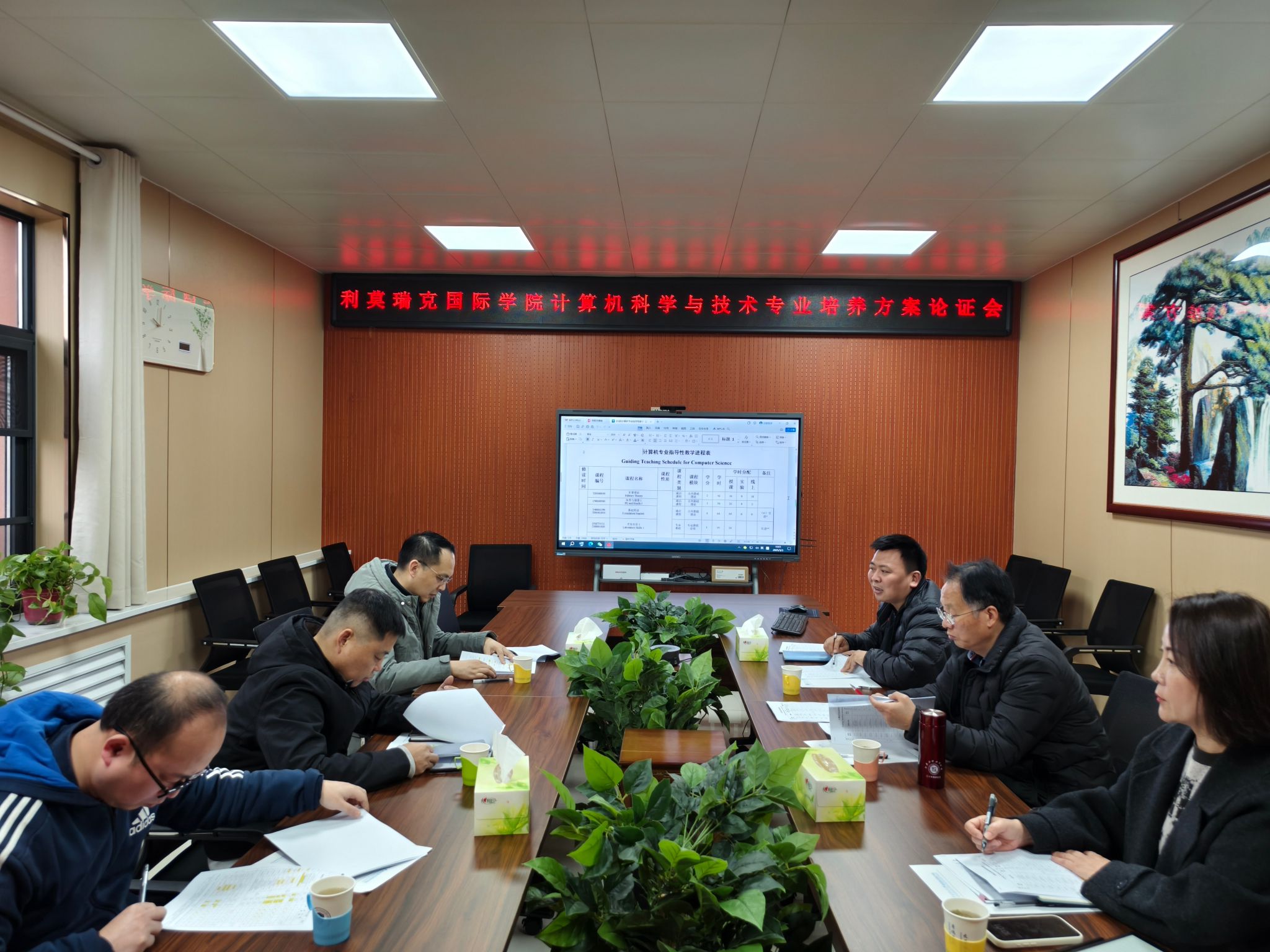
At 10 a.m. on March 3, Limerick International College held a review meeting for the Computer Science and Technology program training plan in Conference Room 202 on the second floor of the college. Wang Lei, Vice Dean of the School of Computer Science, along with senior faculty members Hou Shouming and Su Baishun, were invited to attend. Zhang Changsen, Dean of Limerick International College, He Junyi, Vice Dean, and teaching administrators of the college were also present.
The revision of this training plan must meet both the graduation degree requirements of the University of Limerick and the unique talent cultivation needs of Henan Polytechnic University. To ensure a high degree of alignment between the two, the college organized multiple expert discussions and repeated consultations, continuously refining the plan in practice to maintain academic rigor while better serving students’personalized development.
The meeting delved into the scientific, forward-looking, and adaptive aspects of the training plan, focusing on key issues such as curriculum system optimization, practical teaching system construction, credit and hour allocation, and the integration of courses introduced by the foreign partner.
Regarding curriculum system optimization, the experts systematically reviewed the layout of professional courses, practical teaching, and general education courses based on current disciplinary trends and industry demands. The goal was to build a scientific, comprehensive, and synergistic curriculum system, ensuring students systematically master the core knowledge of computer science and technology while enhancing the overall quality of talent cultivation.
For the ratio of compulsory to elective courses, participants conducted quantitative analysis and evaluation based on talent cultivation objectives and students’personalized development needs. The aim was to meet basic professional requirements while offering more course options to stimulate students’learning interest and innovative potential.
On the issue of credit and hour allocation, attendees engaged in scientific discussions on the proportion of theoretical versus practical teaching, considering pedagogical principles and practical needs. The objective was to ensure that, while meeting total credit requirements, students could solidify their theoretical foundation and improve their ability to solve practical problems through hands-on experience, achieving deep integration of knowledge and skills.
